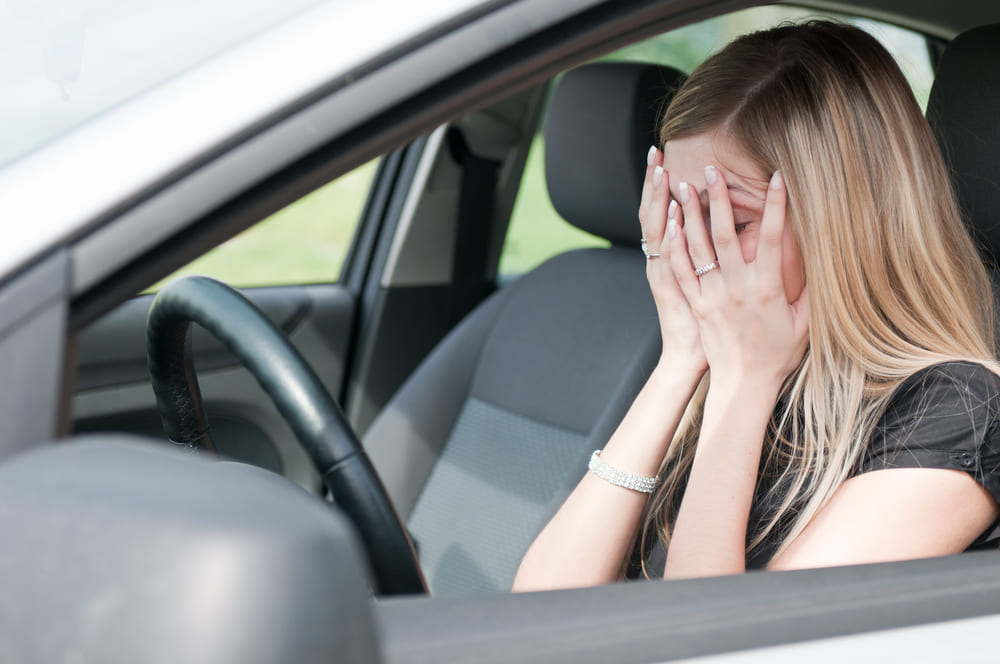After experiencing a stressful event, such as a car accident, a person may develop post-traumatic stress disorder (PTSD), a mental health disease. Some people in a car accident may develop PTSD, even if the accident was not severe or did not result in serious injuries.

What is PTSD and what are the most common causes of PTSD?
PTSD stands for post-traumatic stress disorder. It is a mental health condition that can develop after a person has experienced or witnessed a traumatic event, such as a natural disaster, a car accident, a terrorist attack, or a sexual or physical assault.
Symptoms of PTSD can include recurrent and distressing memories or flashbacks of the traumatic event, avoidance of people or places associated with the trauma, difficulty sleeping, irritability or outbursts of anger, and hypervigilance (being constantly on guard).
A wide range of traumatic events can cause PTSD, and the severity of the disorder can vary depending on the individual and the event. Some common causes of PTSD include:
- Military combat
- Sexual or physical assault
- Serious accidents, such as car accidents or plane crashes
- Natural disasters, such as earthquakes or hurricanes
- Terrorism
- Childhood abuse
It’s important to note that not everyone who experiences a traumatic event develops PTSD. The condition is diagnosed based on specific symptoms, and treatment typically involves therapy and medication. If you are experiencing symptoms of PTSD, it is essential to seek help from a mental health professional.
The risk of PTSD after a car accident
There is a risk of developing post-traumatic stress disorder (PTSD) after a car accident, especially if the accident was severe or resulted in injuries or the death of someone involved. However, the risk of developing PTSD after a car accident can vary widely depending on several factors, including the individual’s history of trauma and their coping mechanisms, the severity of the accident, and the level of support available after the accident.
Symptoms of PTSD may not appear immediately after a car accident and may not manifest for several weeks or even months. Consider a scenario where you were in a car accident and are now dealing with symptoms like hypervigilance, problems sleeping, frequent and upsetting memories or flashbacks of the accident, avoidance of persons or places connected to the accident, and irritability or outbursts of anger (being constantly on guard). It is imperative to consult a mental health expert in the situation. A mix of counseling and medication may be used to treat PTSD.

Can you get PTSD from a car accident?
It is possible to develop post-traumatic stress disorder after a car accident, even from a minor car accident. However, the risk may be lower than after a more severe accident.
Several factors can influence the risk of developing PTSD after a car accident, including the individual’s history of trauma and coping mechanisms, the severity of the accident, and the level of support available after the accident. If you were involved in a minor car accident and are experiencing symptoms of PTSD, it is essential to seek help from a mental health professional. Treatment for PTSD may include therapy, medication, or a combination of both.
Is PTSD from car accident years later possible?
It is possible to develop post-traumatic stress disorder (PTSD) years after a car accident, although this is less common than developing the disorder shortly after the accident. A person may experience or witness a traumatic event that results in PTSD. The severity of the event can affect the likelihood of experiencing the disease.
Symptoms of PTSD after car accident
Symptoms of post-traumatic stress disorder after a car accident can vary widely, but some common symptoms include:
- Recurrent and distressing memories or flashbacks of the car accident: These may involve vivid, sensory memories of the event and can be triggered by things that remind the person of the accident.
- Avoidance of people or places associated with the car accident: This may involve avoiding driving, being a passenger in a car, or avoiding areas where the accident occurred.
- Difficulty sleeping: This can include trouble falling or staying asleep or experiencing nightmares related to the car accident.
- Irritability or outbursts of anger: The person may have difficulty controlling their anger or become easily agitated or frustrated.
- Hypervigilance (constantly on guard): The person may always feel on edge or look for potential threats.
- Difficulty concentrating: The person may have trouble focusing on tasks or completing routine activities.
- Feeling emotionally numb: The person may feel detached from their emotions or have difficulty experiencing pleasure.
- Difficulty maintaining relationships: The person may have trouble forming or maintaining close relationships.
- Depression and/or Fatigue: Both depression and fatigue can be symptoms of PTSD after a car accident, as the event’s trauma can significantly impact an individual’s emotional and physical well-being.
Symptoms of depression may include changes in appetite and sleep patterns, difficulty concentrating, feelings of worthlessness or guilt, and thoughts of suicide.
There are other symptoms that we won’t be able to discuss but are easy to comprehend such as:
- Anxiety
- Increased Isolation
- Avoiding Reminders

How long does PTSD last after a car accident?
The duration of post-traumatic stress disorder (PTSD) after a car accident can vary widely, and there is no set timeline for how long the condition may last. Some people may experience symptoms of PTSD immediately after the accident, while others may not develop the disorder until several weeks or months later.
The length of time that PTSD lasts after a car accident can depend on several factors, including the severity of the accident, the individual’s history of trauma and coping mechanisms, and the level of support available after the accident.
The likelihood of PTSD symptoms resolving on their own can depend on several factors, including the severity of the car accident, the individual’s history of trauma and coping mechanisms, and the level of support available after the accident. People with strong social support networks and effective coping mechanisms are more likely to recover from PTSD without treatment.
It is essential to seek professional help for post-traumatic stress disorder (PTSD) after a car accident if your symptoms disrupt your daily life and cause significant distress.



